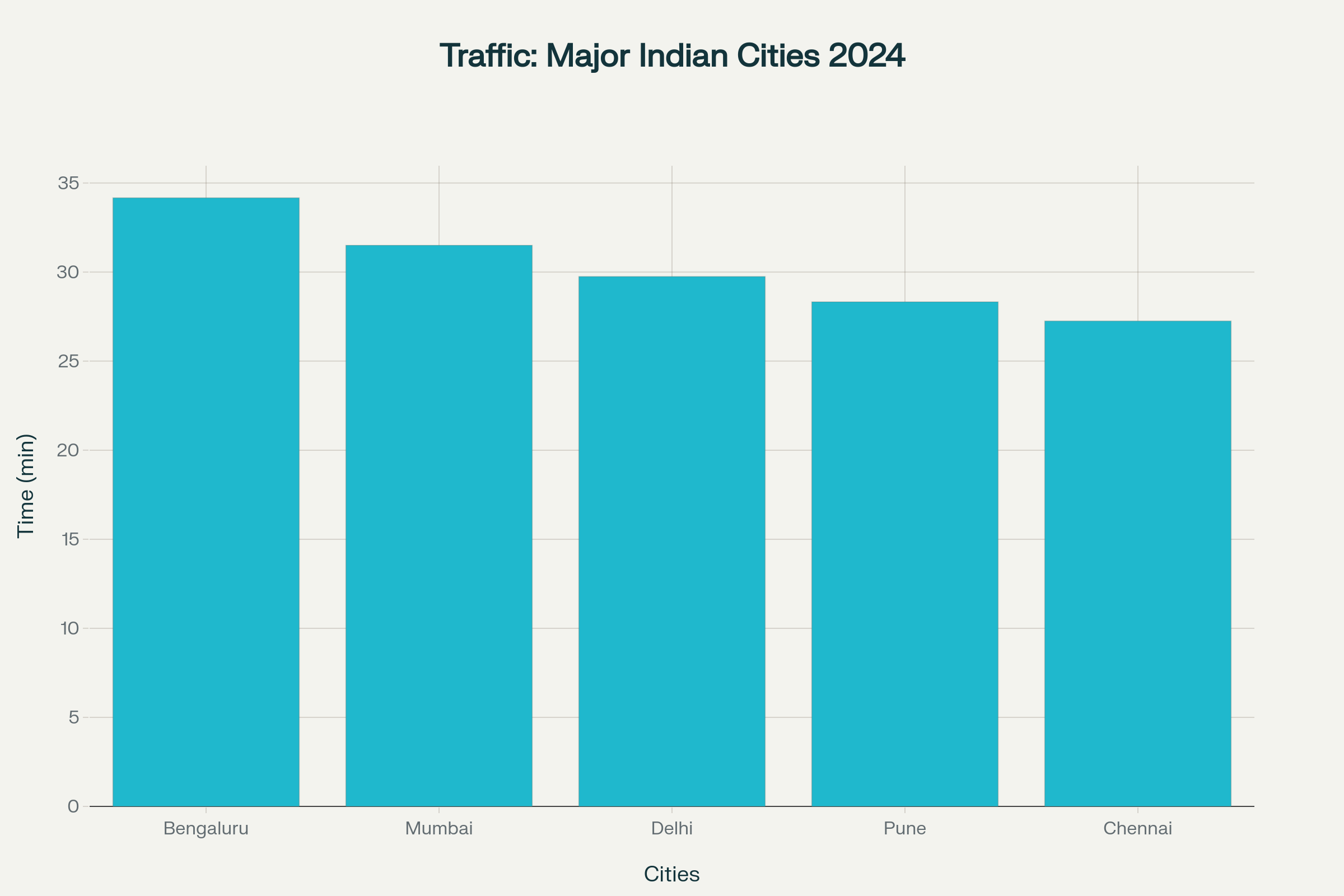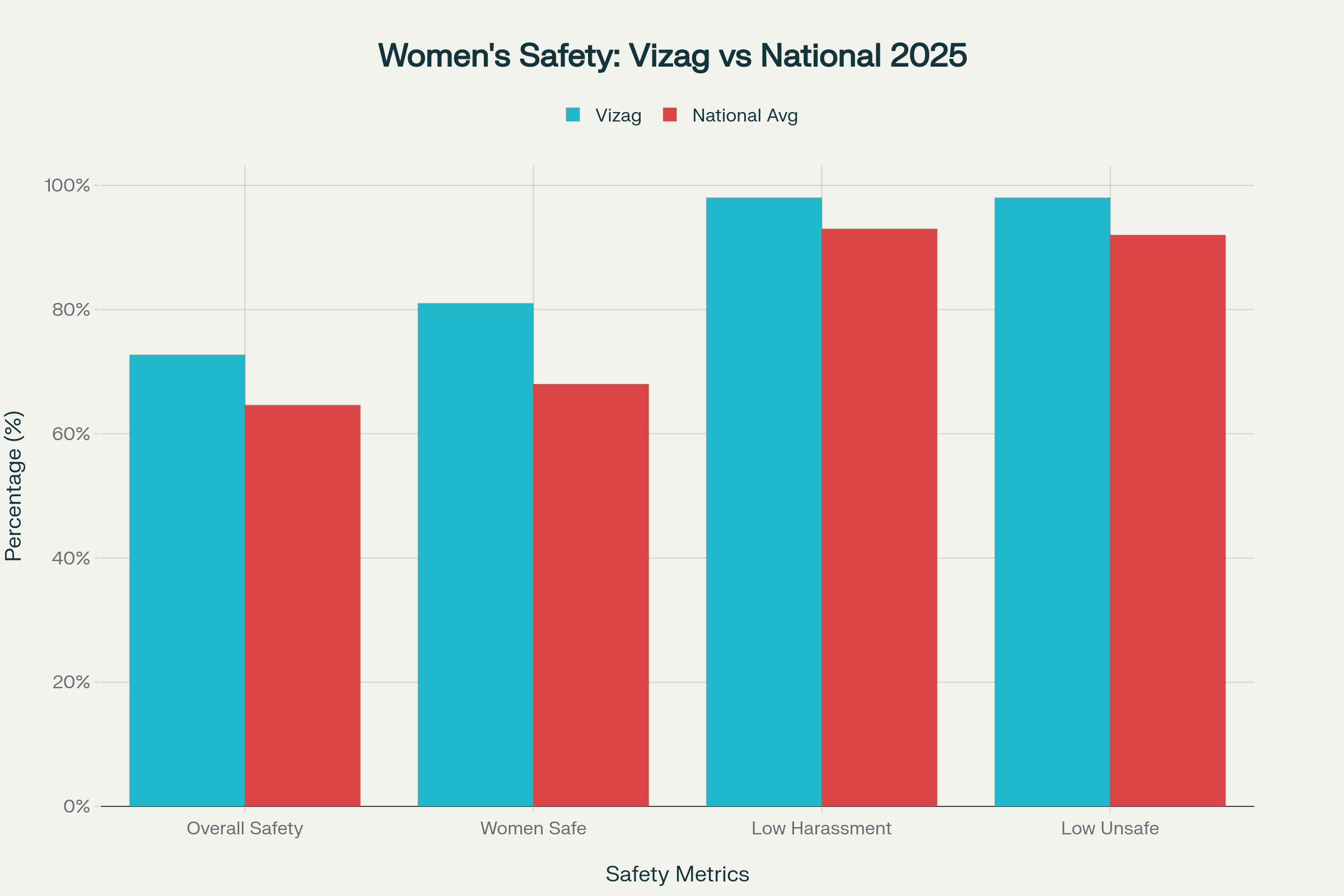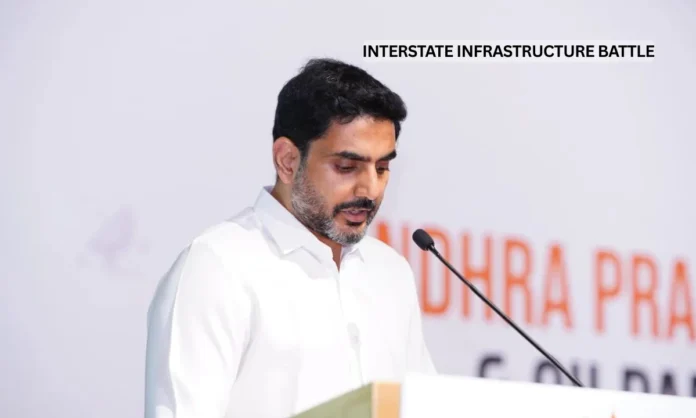Key Highlights:
- The BlackBuck CEO pothole complaint triggered a political spat between Karnataka Deputy Chief Minister DK Shivakumar and Andhra Pradesh Minister Nara Lokesh over infrastructure governance
- Bengaluru ranks as the world’s third slowest city for traffic with 34 minutes average travel time per 10 kilometers, according to TomTom Traffic Index 2024
- Visakhapatnam scores 72.7% in women’s safety assessment, significantly higher than the national average of 64.6%, while maintaining top-10 cleanliness rankings nationally
Opening Text
The BlackBuck CEO pothole complaint has escalated into a full-scale interstate rivalry between Karnataka Deputy Chief Minister DK Shivakumar and Andhra Pradesh Minister Nara Lokesh over corporate investment strategies. The dispute began when BlackBuck’s Rajesh Yabaji announced his logistics company’s decision to relocate from Bengaluru’s Outer Ring Road, citing unbearable traffic conditions and deteriorating infrastructure in his viral social media post.
This BlackBuck CEO pothole complaint has exposed deeper governance issues affecting India’s technology capital, while simultaneously highlighting the competitive dynamics between southern states vying for business investments. The controversy demonstrates how a single corporate grievance can transform into a broader political battleground over governance effectiveness and economic competitiveness.
Political Leaders Clash Over Corporate Grievances
The BlackBuck CEO pothole complaint reached a political crescendo when DK Shivakumar dismissed corporate concerns as attempted blackmail, stating that governments cannot be threatened by business complaints. Shivakumar told NDTV that “blackmailing a government won’t work” and declared emphatically that “no one will leave Bengaluru” despite infrastructure challenges raised in the corporate complaint. His response prompted a sharp retort from Andhra Pradesh Human Resources Minister Nara Lokesh, who criticized Karnataka’s approach to handling legitimate business grievances.
- Lokesh emphasized that Andhra Pradesh treats corporate concerns with “dignity and seriousness” rather than dismissing them as blackmail, directly referencing the BlackBuck CEO pothole complaint
- The Andhra minister publicly invited BlackBuck to relocate to Visakhapatnam, citing the city’s top-5 cleanliness ranking and women’s safety credentials following the infrastructure complaint
- Shivakumar acknowledged Bengaluru’s infrastructure problems while defending the state government’s efforts to address traffic and road conditions highlighted in business grievances
Nara Lokesh’s strategic response to the BlackBuck CEO pothole complaint positioned Andhra Pradesh as a business-friendly alternative, highlighting Visakhapatnam’s achievements in cleanliness and safety rankings. The minister’s social media post emphasized that “what sets Andhra Pradesh apart is that we don’t dismiss our people’s genuine grievances as blackmail,” directly challenging Karnataka’s handling of corporate feedback. This political maneuvering transformed the infrastructure complaint from a local issue into a broader debate about governance philosophy and business relations.
Hi Rajesh, can I interest you in relocating your company to Vizag? We are rated among top 5 cleanest cities in India, are building best-in-class infra, and have been rated the safest city for women. Please send me a DM. https://t.co/HLfP2CVTys
— Lokesh Nara (@naralokesh) September 17, 2025
Bengaluru’s Infrastructure Crisis Reaches Breaking Point
The BlackBuck CEO pothole complaint has brought unprecedented attention to Bengaluru’s deteriorating urban infrastructure, with the city ranking as the world’s third slowest for traffic congestion. According to the TomTom Traffic Index 2024, commuters in Bengaluru require an average of 34 minutes and 10 seconds to travel just 10 kilometers, representing a 50-second increase from 2023. The severity of issues raised in the corporate complaint reflects broader systemic problems, with over 12 million vehicles competing for space on roads originally designed for much smaller populations.

Traffic congestion comparison showing Bengaluru’s position as India’s most congested city with 34+ minutes average travel time per 10 kilometers
- Bengaluru’s population surged from 746,000 in 1950 to approximately 14 million in 2025, representing an 18-fold increase that validates infrastructure concerns raised in the BlackBuck CEO pothole complaint
- The city recorded 23.1 lakh private vehicles as of March 2023, surpassing New Delhi’s count of 20.7 lakh vehicles, supporting urban congestion problems highlighted in business complaints
- October 5, 2024, marked Bengaluru’s most congested day with 58% congestion levels and 39 minutes travel time for 10 kilometers, exemplifying issues raised in corporate grievances
Industry leaders including Biocon’s Kiran Mazumdar-Shaw and Manipal’s Mohandas Pai have echoed concerns raised in the BlackBuck CEO pothole complaint, calling the situation a “big failure of governance” requiring emergency measures. DK Shivakumar acknowledged structural problems referenced in business complaints, noting that many IT parks remain under rural panchayat governance rather than city authorities, complicating infrastructure maintenance and development. The Deputy Chief Minister outlined plans for a Greater Bengaluru Authority to streamline infrastructure funding and management, responding to criticisms raised in corporate feedback.
Visakhapatnam Emerges as Competitive Alternative
Andhra Pradesh’s response to the BlackBuck CEO pothole complaint strategically promoted Visakhapatnam’s superior livability metrics, with the coastal city ranking among India’s top performers in safety and cleanliness indicators. According to the National Commission for Women’s 2025 report, Visakhapatnam scored 72.7% in comprehensive safety assessment for women, significantly exceeding the national average of 64.6%. The city maintains its position among India’s cleanest urban centers, ranking 9th in the Swachh Survekshan 2024 among cities with over one million population, directly contrasting with infrastructure problems highlighted in business grievances.

Women’s safety metrics comparison highlighting Visakhapatnam’s superior performance across all safety indicators compared to national averages
- 81% of women in Visakhapatnam report feeling safe or highly safe, with only 2% experiencing unsafe conditions, offering stark contrast to urban problems raised in corporate complaints
- The city recorded merely 2% harassment incidents annually, well below the national average of 7%, showcasing governance quality that addresses business concerns effectively
- Visakhapatnam earned full marks in open defecation-free categories and scored 11,636 out of 12,500 in overall cleanliness metrics, demonstrating infrastructure management superior to challenges faced in other cities
The strategic positioning following the BlackBuck CEO pothole complaint highlights Andhra Pradesh’s economic momentum, with the state ranking third nationally in per capita income growth at 11.89%. Chief Minister Chandrababu Naidu’s administration has set ambitious targets through the Swarna Andhra Vision-2047, projecting per capita income growth from ₹2,66,240 in 2024-25 to ₹55 lakh by 2047. This economic trajectory supports Lokesh’s pitch to relocating businesses following infrastructure complaints, positioning Andhra Pradesh as a viable alternative to Karnataka’s congested urban centers.
Economic Implications of Interstate Competition
The political fallout from the BlackBuck CEO pothole complaint reflects broader competitive dynamics among southern Indian states for technology and logistics investments. Karnataka maintains its position as India’s third-largest GDP contributor at 8.2%, while southern states collectively account for 30% of national GDP. However, infrastructure challenges highlighted in business complaints create opportunities for states like Andhra Pradesh to attract disgruntled businesses seeking better operational environments.
- Karnataka’s GDP share increased from 5.4% in 1960-61 to 8.2% in 2023-24, positioning it as a major economic contributor despite issues raised in corporate feedback
- Andhra Pradesh’s per capita income reached ₹2,66,240 in 2024-25, with 11.89% growth rate ranking third nationally, supporting arguments made following business grievances
- Southern states collectively drive India’s economic growth, with technology and services sectors leading expansion, making infrastructure quality crucial as demonstrated by corporate complaints
The interstate rivalry triggered by the BlackBuck CEO pothole complaint underscores the critical importance of urban infrastructure in maintaining competitive advantages for business hubs. Karnataka’s state budget allocated ₹8,000 crore for the Chief Minister’s infrastructure development program, focusing on roads and urban infrastructure improvements, partially addressing concerns raised in business feedback. Meanwhile, Andhra Pradesh leverages its infrastructure investments and governance improvements to position cities like Visakhapatnam as attractive alternatives for businesses frustrated with urban challenges.
Final Assessment
The political controversy sparked by the BlackBuck CEO pothole complaint has transformed a corporate grievance into a broader debate about governance effectiveness and interstate competition for business investments. While DK Shivakumar’s dismissive response to legitimate infrastructure concerns may reflect defensive political instincts, it has inadvertently provided Andhra Pradesh with strategic opportunities to showcase superior urban governance and business-friendly policies.
The dispute highlights how infrastructure quality directly impacts states’ abilities to retain and attract investments, with cities like Visakhapatnam positioned to benefit from Bengaluru’s urban planning failures exposed by corporate feedback. As southern states continue competing for technology sector investments, the BlackBuck CEO pothole complaint serves as a watershed moment demonstrating that political responsiveness to business concerns can determine long-term economic competitiveness.
The ultimate resolution of Bengaluru’s infrastructure challenges will likely influence whether Karnataka can maintain its technology hub status or watch businesses migrate to better-managed urban centers across India, making corporate grievances a defining factor for regional development strategies.


